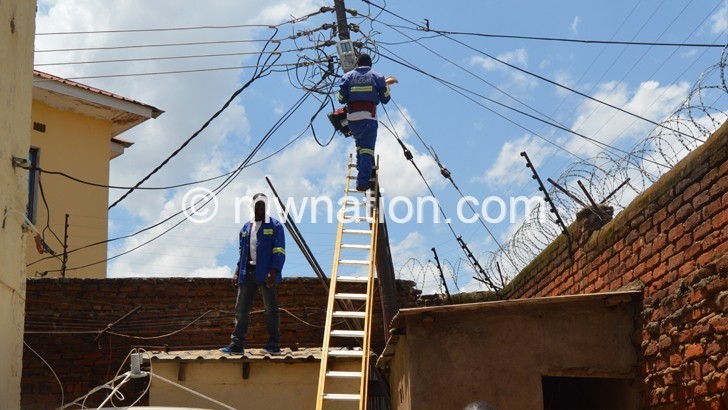AfDB punches holes in Malawi’s energy sector
The African Development Bank (AfDB) has faulted Malawi’s energy sector for lacking accountability and transparency to allow it carry out its mandate independently.
This is contained in the third edition of the AfDB’s Electricity Regulatory Index for Africa (ERI) Report, which measures the level of development of regulatory frameworks in 36 African countries, including Malawi.

It also examines their impact on the performance of their respective electricity sectors.
While observing that there are relatively robust institutional frameworks for the regulation of electricity sectors in Malawi and other African countries, the bank said much work remains in strengthening regulatory independence.
The pan-African bank said it sees more room for improvement with respect to accountability and independence to align with international best practices often necessary to attract future investment into the sector.
Commenting on the findings, energy consultant Grain Malunga noted that political interference in the country’s electricity entities remains an issue of concern.
“The issue of concern has been how the entity performs its duties. The interference of politics in statutory corporations such as Escom [Electricity Supply Corporation of Malawi] is an issue,” he said.
Malunga said politicians are spoiling the institution’s duties, calling for deliberate policies and strategies to free statutory entities.
He, however, agreed with the report, saying the country’s legal and institutional frameworks for electricity sector regulation are correct.
In its 12th edition of the Malawi Economic Monitor issued recently, the World Bank noted that government is involved in the day-to-day management of State-owned entities (SOEs) including Escom, pointing out that political interference in decision-making processes is common.
The World Bank further observed that governance, financial management and capacity issues are major concerns for financial institutions and private investors when making decisions to finance SOEs or their projects.
Reads the report: “These concerns include gaps in corporate governance and the independence of boards of directors, limited capacity at the level of both board of directors and executive managements, political interference in decision-making, corruption, and poor operational and financial performance.”
Ministry of Energy spokesperson Saidi Banda in an interview on Tuesday while admitting the challenges in the energy sector, said government has put in place initiatives such as implementation of the Energy Policy 2018 to correct the sector.
AfDB which has ranked Malawi on position 15 out of 36 has encouraged development in the power sector and investments in power infrastructure.





